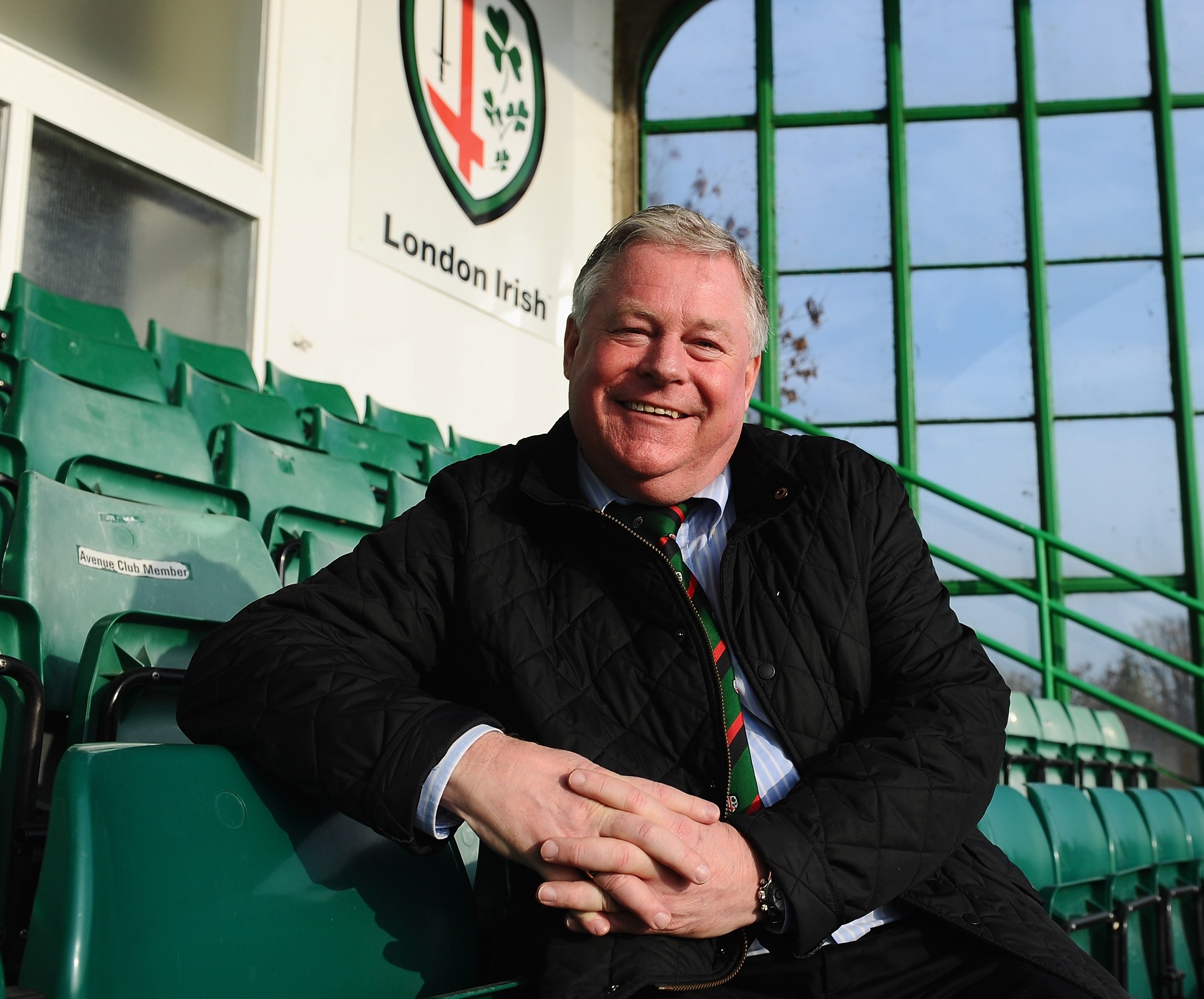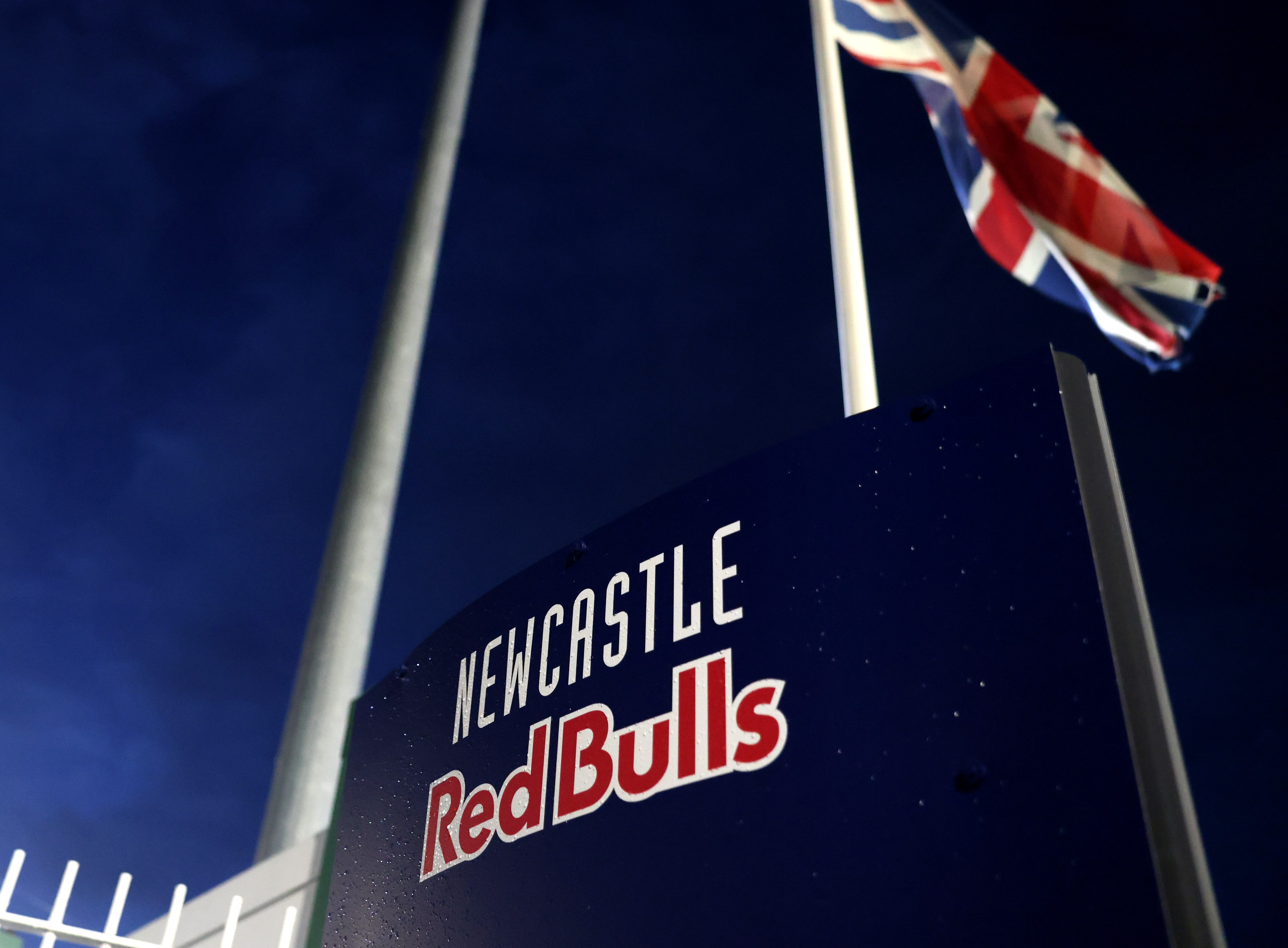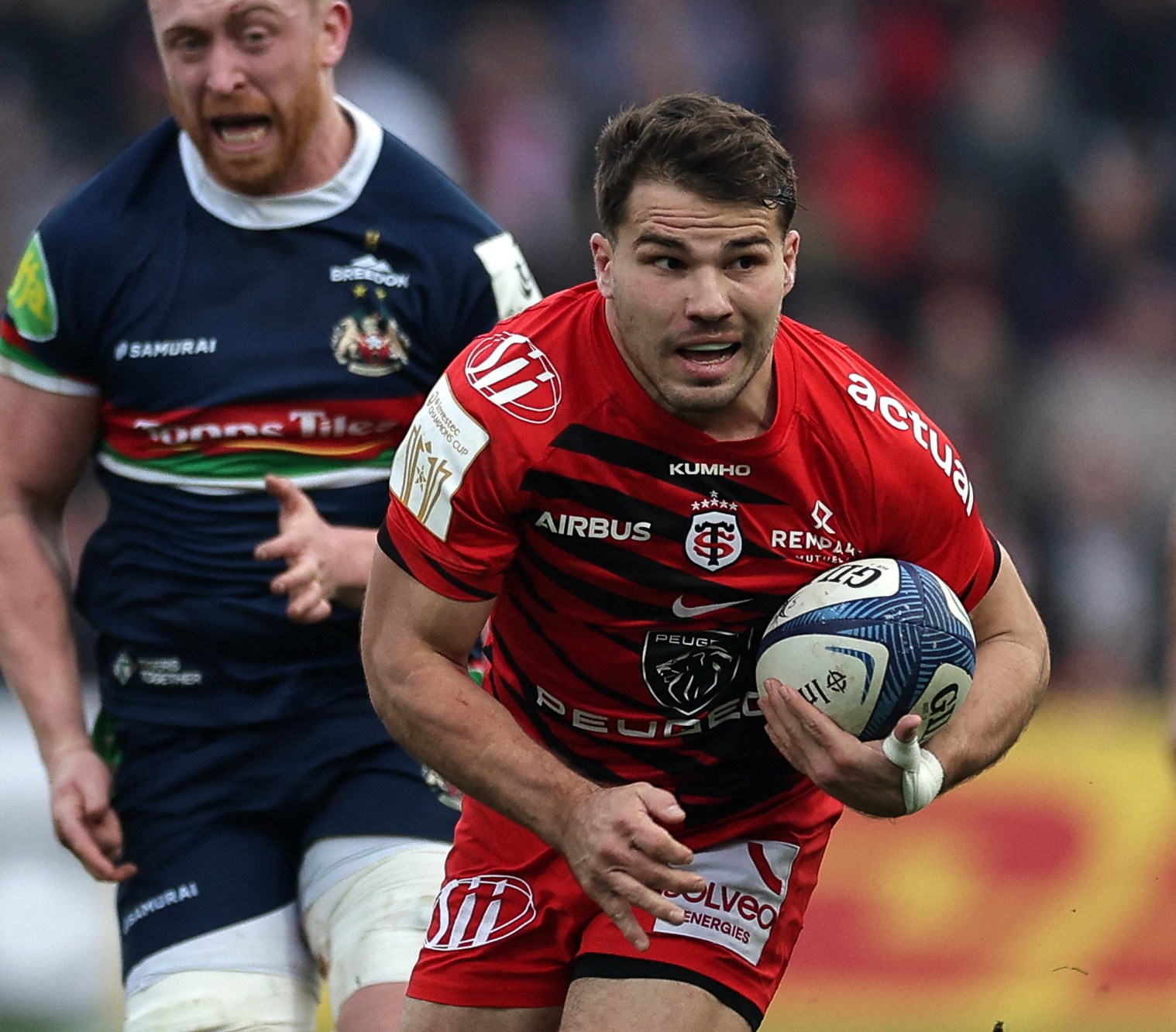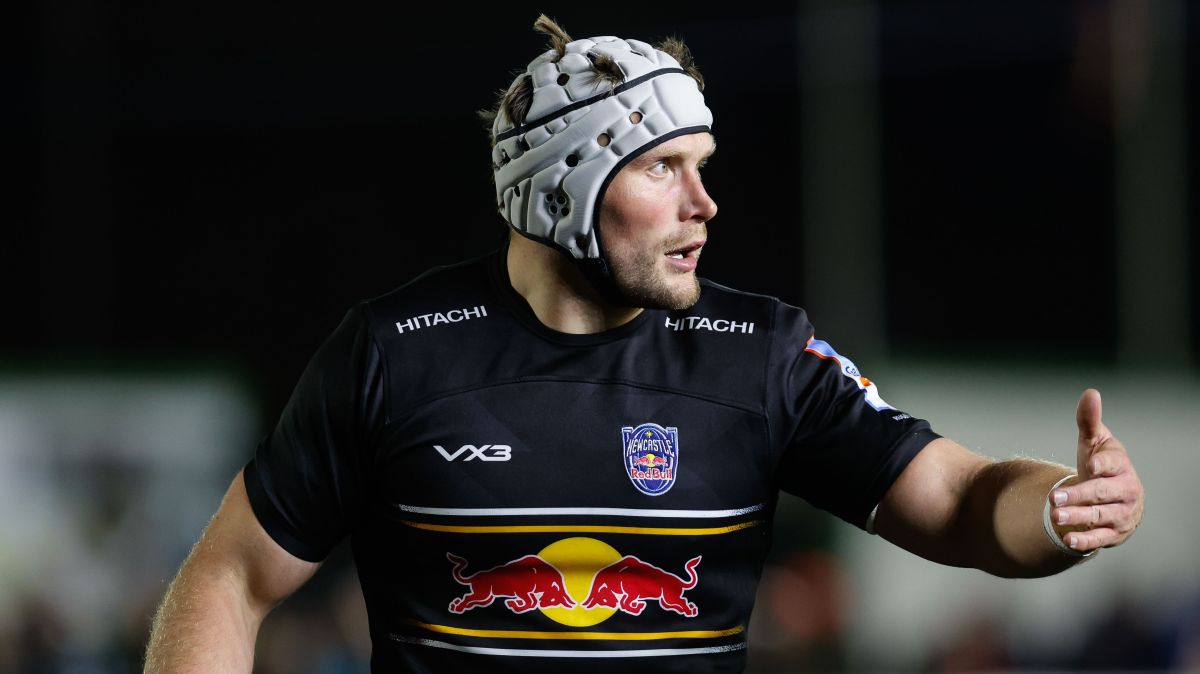Prem Rugby believes it is on course to fight off the threat of R360 and establish England’s top flight as “the best league in the world” after emerging from five years of financial crisis to generate record revenues of £200million, according to documents seen by The Times.
R360 has pitched its global franchise league to players and investors as the future for professional rugby, by arguing that the traditional club model is broken and unsustainable. Four English professional clubs have gone bust in recent years, with others folding in Australia and the United States.
But an independent financial report due to be published this month will present a more optimistic picture. Three of the ten Prem Rugby clubs are set to break even this season.

London Irish were put into administration by Crossan, their former owner, in June 2023
MIKE HEWITT/GETTY IMAGES
Player salaries have moved above pre-Covid levels, with the average now £192,000, compared with £177,000 in 2019. That figure is expected to rise with Newcastle Red Bulls committed to investing more in the squad after the club’s takeover.
The league has recorded a 6 per cent annual growth rate since 2023, with revenues forecast to exceed £200million this year. Costs have remained flat, despite inflationary pressures, leading to a 44 per cent reduction in underlying losses.
Third-party debt still stands at £101.1million, roughly 70 per cent of which is owed to the Department for Culture, Media and Sport after clubs received government loans in 2020 to help them stay afloat during Covid. Repayments have begun.
The figures will be published in the first annual report written by the independent Financial Monitoring Panel (FMP), which was established after London Irish, Wasps and Worcester Warriors all went into administration in 2022 and 2023, along with second-tier club Jersey Reds.
Simon Massie-Taylor, the chief executive of Prem Rugby, said the league — renamed and rebranded the Prem from this season, having previously been known as the Premiership — was entering “a really exciting growth phase” and that there was no cap on ambition.
“We know we have something very special with the Prem and we are on a good financial trajectory. Fan interest and engagement is exponentially increasing too, proving that there is plenty more commercial growth to go after,” he said.
“Our focus now is to continue to fuel this growth with amazing players playing for historic clubs. We have an incredibly competitive league with strong foundations built on high standards, financial control and strategic investments. Our vision is to be the best league in world rugby and I am very optimistic about the future.”
Most clubs remain reliant on investment from owners and benefactors to stay afloat. While some owners are understood to have indicated to FMP a desire to convert the soft debt into equity, it can be problematic when owners decide to pull out.

Other investors have taken note after Red Bull added Newcastle to its stable of sporting organisations
GEORGE WOOD/GETTY
London Irish went bust when Mick Crossan decided he could no longer fund the club. The FMP process, introduced subsequently, flagged up the financial issues at Newcastle and gave Prem Rugby a year to draw up three potential scenarios to save the club. Plan A was to attract a new investor and it succeeded in bringing Red Bull on board.
Red Bull’s purchase of Newcastle has “definitely got a lot of attention within the wider sports investor community”, according to Massie-Taylor, who is exploring fresh investment both at league level and into individual clubs.
“There are a lot more conversations going on,” he said. “We are looking to do everything we can to reinforce our model and to make it as investable as possible.”
Prem Rugby is not out of the woods financially but the indicators are more positive now than in recent years. Television audiences are up, ticket sales are up and the occupancy rate in stadiums is up 14 per cent in five years. The final at Twickenham will sell out again.
The Prem has explored an Anglo-Welsh league or a British and Irish league but its vision now is to expand, with two clubs set to be added to the top flight over the next two seasons to increase the number of home games.
Match-day revenue accounts for 43 per cent of a club’s income but the financial projections for the league are boosted by a new deal with the RFU, worth £33million a year, and a new television contract with TNT Sports.

In a blow to R360, Dupont has agreed a deal that will keep him at Toulouse until 2031
VIA GETTY IMAGES/AFP
Prem Rugby was helped in its battle to fend off R360 by the RFU leading a multi-union position confirming that any player who signs for the franchise league would be ineligible for Test rugby.
Antoine Dupont, the No1 target for R360, has re-signed with Toulouse. George Ford, Fin Smith, Fraser Dingwall and Alex Coles have all announced new deals to stay in the Prem in recent weeks.
R360 is understood to have recruited some international-level rugby union players, having also approached rugby league stars from the NRL, but organisers have not yet confirmed any names.
Mitchell to help coach Gloucester’s leaky defence for free
John Mitchell, the England Women head coach, will lend his coaching expertise free of charge to Gloucester to help improve their “tackle and collision effectiveness within the context of the team’s overall defensive development”.
Mitchell, who is still under contract with the RFU, will coach the Red Roses into the Six Nations next year, having guided them to glory at the Women’s World Cup in September.
Gloucester conceded 190 points in their first five Prem matches. Only Newcastle had a worse defensive record. The club said Mitchell, 61, had offered to spend time through November helping coaches “develop their understanding and application of effective defensive systems”.

